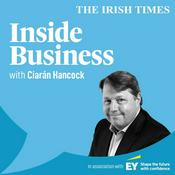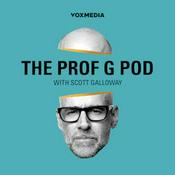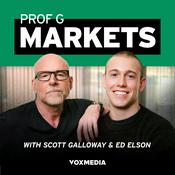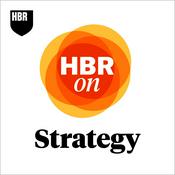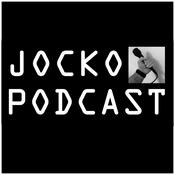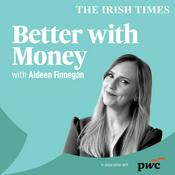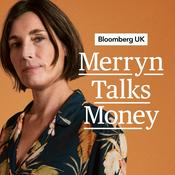21 episodes

Evgeny Shadchnev on Transitioning From Founder to CEO
10/12/2025 | 49 mins.
Why has founder CEO succession become one of the most stressful and consequential decisions a board can make?In this episode of The Boardroom Path, host Ralph Grayson speaks with Evgeny Shadchnev, founder of Makers, author of Startup CEO Succession and coach to founder CEOs, about how to navigate leadership transitions when the stakes feel deeply personal and financially critical. Drawing on his own journey from founder CEO to coach, Evgeny explains the crucial shift from building a product to building the company that builds the product, and why behaviours that work in a five‑person team become harmful in a seventy‑person organisation.Against a backdrop of rising CEO turnover even at high‑performing companies, as boards lean into more proactive succession planning rather than waiting for crisis, Evgeny and Ralph explore how boards can spot early warning signs, support founders through burnout and identity shifts, and create a safe, trusted space for honest conversations. From job specs that look ahead to where the “puck” is going, to the pitfalls of rushed transitions and lateral moves into chair roles, this conversation offers a practical roadmap for founders, investors and aspiring NEDs.Evgeny Shadchnev: Evgeny Shadchnev is the founder and former CEO of Makers, one of the UK’s leading coding bootcamps, where he helped tackle the tech talent shortage by training complete beginners to become software developers. After leading Makers through its growth and his own CEO succession, he became a certified professional coach specialising in founder CEO transitions, working with entrepreneurs and boards on the personal and organisational challenges of leadership change. He is the author of Startup CEO Succession: A Founder’s Guide to Leadership Transition and hosts the Startup CEO Succession podcast, where he interviews founders, successor CEOs and investors about real‑world succession stories.Ralph Grayson: Ralph Grayson is a Partner in the Board Practice at Sainty Hird & Partners, bringing extensive experience in board-level recruitment, assessment, and advisory services. With a deep understanding of the corporate governance landscape, Ralph specialises in guiding senior executives as they transition into impactful boardroom careers. His thoughtful approach, combined with a passion for developing effective leaders, enables him to facilitate insightful conversations that equip aspiring and newly appointed Non-Executive Directors with the tools they need to succeed. Through The Boardroom Path, Ralph leverages his extensive professional network and expertise to empower listeners on their journey into the boardroom.Episode Insights:The founder’s job is to keep the company alive and find product–market fit, while the CEO’s job is to build and lead the organisation that builds the product.Behaviours that are life‑saving in a five‑person startup, such as having an opinion on everything, often become micromanagement and a blocker once the team scales.Early, ongoing conversations about the CEO job spec, the company’s future needs and the founder’s preferences reduce the risk of crisis‑driven, rushed transitions.Trust and informal dialogue between founder, chair and investors are as important as formal board meetings in handling succession with maturity and respect.Lateral moves (for example, founder to chair or functional role) only work when the founder is genuinely qualified for the role and willing to get out of the new CEO’s way.Action Points:Clarify the founder vs CEO job over time: Schedule regular discussions between the founder, chair and board about how the CEO role is evolving over the next two to three years. Map what the company will need from its leader, compare that with the founder’s strengths and preferences, and document a living CEO job spec that is revisited annually rather than only in moments of crisis.Normalise early succession conversations: Build CEO succession into the board’s “good hygiene” agenda, alongside cash flow and risk. Treat it as an ongoing strategic topic, not a signal of imminent removal, so that founders can talk openly about burnout, changing life priorities and future roles without fear that one conversation will trigger an immediate process.Invest in trusted relationships on the board: Ensure there is at least one board member – ideally the chair – with whom the founder has a deep, trusted relationship. Encourage informal check‑ins between meetings so concerns about fit, performance or wellbeing surface early and privately, rather than erupting in formal sessions where they are harder to handle constructively.Design the succession process as a shared project: When a CEO transition becomes likely, treat it as a collaboration between outgoing CEO and board. Co‑create the forward‑looking job description, agree who leads the search, and define how the current CEO will contribute without over‑controlling the process. This shared ownership reduces defensiveness and keeps the company’s long‑term interests at the centre.Plan the founder’s next chapter deliberately: Support the founder in clarifying what comes after the CEO role before any transition is finalised. Encourage them to take time to rest, reflect and explore options such as coaching, new ventures, advisory roles or different executive positions, rather than grabbing the first opportunity. A clear, attractive “next step” makes it easier for the founder to let go and for the board to communicate a confident story to investors.The Boardroom Path is the essential podcast for aspiring and newly appointed Non-Executive Directors (NEDs) navigating the journey from executive leadership to the boardroom. Hosted by Ralph Grayson, partner at Sainty Hird & Partners, each episode offers insightful conversations with industry leaders, seasoned board directors, and governance experts. Our guests share practical strategies, valuable perspectives, and actionable advice on how to effectively transition into board roles, maximise your impact, and build a rewarding NED career. Subscribe now, and take your first confident step along The Boardroom Path.Learn more about Sainty Hird & Partners at saintyhird.com.The Boardroom Path is produced by Story Ninety-Four in Oxford, UK.

Are Boards Adding Enough Value? Megan Pantelides on the Evidence
03/12/2025 | 44 mins.
What does a high‑value board really look like in a world of scandals, regulation fatigue, and infinite agendas? In this episode of The Boardroom Path, host Ralph Grayson speaks with Board Intelligence’s Megan Pantelides to unpack the mindset, skills, and information boards need to move from box‑ticking to real strategic impact. They explore why critical thinking, curiosity and humility separate effective directors from “back‑seat drivers”, and why great governance is really the discipline of a well‑run company – and economy.Megan shares insights from Board Intelligence’s Board Value Index, where nearly half of directors felt their boards were not adding enough value, and explains how better board packs, sharper questions and continuous development can turn that around. She also reflects on live debates about the UK Corporate Governance Code’s comply‑or‑explain regime, including the FRC’s recent push for more meaningful explanations in its latest Annual Review of Corporate Governance Reporting and the updated guidance on NED remuneration, which gives boards new flexibility while preserving independence.From due diligence tips for aspiring NEDs to practical ways to embed critical thinking across an organisation, this conversation offers a grounded roadmap for anyone serious about a long‑term board career.(00:00) - Welcome to The Boardroom Path (03:00) - From Search to Board Intelligence (04:18) - How Board Intelligence Evolved Its Board Effectiveness Offer (06:30) - What Good Board Packs Look Like Across Sectors (10:30) - Using Board Papers for Due Diligence on a New Board Role (12:45) - Higgs Review, Scandals and the Changing Role of NEDs (15:32) - Comply or Explain, Proxies and the Reality of Governance Codes (18:13) - Is It Worth Being on a Board? Risk, Reward and Scrutiny (21:03) - Certification, Competence and the Mindset of Effective Directors (23:31) - Critical Thinking as a Daily Discipline for Boards and Management (33:36) - The Board Value Index and How Boards Can Add More Value Megan Pantelides: Megan Pantelides is a Senior Director at Board Intelligence, Europe’s largest board technology and advisory firm, where she leads on research, content, communications and brand development. She writes extensively on board effectiveness, corporate governance, AI, leadership and organisational culture, with work featured in outlets such as the Financial Times, Sunday Times and Governance and Compliance. Drawing on senior roles in executive search and board advisory, Megan helps boards and leadership teams improve the quality of their information, decision‑making and oversight, and has contributed to major initiatives including the Institute of Directors’ 2025 Commission on the evolving role of non‑executive directors.Ralph Grayson: Ralph Grayson is a Partner in the Board Practice at Sainty Hird & Partners, bringing extensive experience in board-level recruitment, assessment, and advisory services. With a deep understanding of the corporate governance landscape, Ralph specialises in guiding senior executives as they transition into impactful boardroom careers. His thoughtful approach, combined with a passion for developing effective leaders, enables him to facilitate insightful conversations that equip aspiring and newly appointed Non-Executive Directors with the tools they need to succeed. Through The Boardroom Path, Ralph leverages his extensive professional network and expertise to empower listeners on their journey into the boardroom.Episode Insights:Board effectiveness is less about heroic individuals and more about disciplined processes, high‑quality information and a culture that welcomes challenge.Critical thinking in the boardroom starts with better questions, not bigger packs: directors need decision‑ready insight, not kitchen‑sink reporting.The best boards blend a common framework – such as Board Intelligence’s question‑driven insight approach – with tailored, sector‑specific nuance.Certification and formal training can signal commitment and humility, but they only add real value when paired with deep experience and ongoing curiosity.Comply‑or‑explain still works when companies use it honestly: recent FRC reviews show that clearer, context‑rich explanations are becoming a marker of good governance rather than a sign of weakness, as highlighted in the FRC’s Annual Review of Corporate Governance Reporting and related analysis in The Accountant.Action Points:Clarify your board value proposition: Define in plain language what you uniquely bring to a board beyond your executive CV. Distil your sector expertise, functional strengths and mindset (for example, growth versus risk focus) into a coherent narrative you can evidence with real situations and outcomes.Use board packs as a due diligence tool: When considering a role, ask for several years of board papers and read them for signals about focus, candour and alignment with strategy. Look for whether the board spends its time on forward‑looking value creation versus backward‑looking performance monitoring, and use this to shape your questions in interview.Build daily critical‑thinking rituals: Treat recurring reports, updates and meetings as chances to think, not just to transmit information. Before writing or reading a paper, list the core questions that really matter – what is going well, what is not, what keeps management awake at night, and what support is needed from the board – and structure your input around them.Invest in professional development with humility: If you are serious about a NED career, pursue targeted training, certification or board‑readiness programmes that deepen your understanding of the role. Use these not as badges, but as a way to challenge assumptions, practise difficult conversations and refine how you navigate the line between support and oversight.Engage with the governance debate, not just the rules: Stay current on developments such as the updated UK Corporate Governance Code and guidance and the FRC’s guidance on NED remuneration, which emphasise flexibility, meaningful explanations and long‑term alignment. Use this context to frame questions about how any board you join interprets comply‑or‑explain, risk, incentives and culture.The Boardroom Path is the essential podcast for aspiring and newly appointed Non-Executive Directors (NEDs) navigating the journey from executive leadership to the boardroom. Hosted b...

The AI Arms Race: What NEDs Must Know About Cyber, Data and AI
26/11/2025 | 48 mins.
How should boards really think about cyber and AI when every organisation feels under siege? In this episode of The Boardroom Path, host Ralph Grayson speaks with Danny Lopez, CEO of Glasswall and experienced NED, about why cybersecurity is now the defining risk of our time – and why boards must stop treating it as a narrow IT issue. They explore how to reframe cyber as core to trust, reputation and licence to operate, and why good NEDs do not need to code but do need sharp, strategic questions and real intellectual curiosity. Drawing on recent data showing that over 8 in 10 UK businesses plan to increase cyber budgets next year and that AI‑driven threats are a top concern for European security professionals, Danny explains how boards can move beyond tick‑box compliance into meaningful scenario planning, resilience and culture change. From identifying the “crown jewels” in your data estate to avoiding naive uses of open AI tools for board papers, this conversation offers a practical roadmap for NEDs who want to stay ahead of AI‑enabled threats without losing sight of long‑term growth.(00:00) - Welcome to The Boardroom Path (04:50) - A Non‑Linear Career of Risk and Growth (06:04) - Why Cybersecurity Is the Defining Risk of Our Time (07:06) - Inside Glasswall and File‑Based Threat Protection (08:15) - Breaking into the US Intelligence and Defence Market (10:17) - Cyber on the Board Agenda: Curiosity over Fear (13:25) - AI, Cyber and Risk: Enabler Not Just Threat (15:05) - Crown Jewels, Risk Registers and Better Board Questions (17:03) - Resilience, War‑Gaming and Culture Under Stress (20:28) - A New Geopolitical Paradigm and Swan‑Stacking Boards (24:01) - AI as Burglar and Alarm System in Cybersecurity (31:37) - AI, Governance and Avoiding Groupthink in the Boardroom Danny Lopez: Danny Lopez is the CEO of Glasswall, an award‑winning cybersecurity company that protects organisations against sophisticated file‑based threats using zero‑trust Content Disarm and Reconstruction technology. A former British Consul General in New York and Director‑General for trade and investment across North America, he previously served as the inaugural CEO of London & Partners and held senior international banking roles at Barclays in London, New York, Miami and Mumbai. Danny is a non‑executive director at Innovate Finance and Aquis Stock Exchange and a pro bono adviser to the City of London Corporation, giving him a unique vantage point at the intersection of geopolitics, finance, technology and board‑level risk. Ralph Grayson: Ralph Grayson is a Partner in the Board Practice at Sainty Hird & Partners, bringing extensive experience in board-level recruitment, assessment, and advisory services. With a deep understanding of the corporate governance landscape, Ralph specialises in guiding senior executives as they transition into impactful boardroom careers. His thoughtful approach, combined with a passion for developing effective leaders, enables him to facilitate insightful conversations that equip aspiring and newly appointed Non-Executive Directors with the tools they need to succeed. Through The Boardroom Path, Ralph leverages his extensive professional network and expertise to empower listeners on their journey into the boardroom.Episode Insights:Cybersecurity is not a narrow IT issue but a core risk‑management and trust issue that underpins an organisation’s licence to operate.Boards do not need deep technical skills but must be intellectually curious, ask incisive questions and insist that cyber information is presented in plain, decision‑ready language.Identifying and protecting the “crown jewels” in your digital landscape allows boards to focus spend and oversight where it matters most instead of spreading security budgets thinly across everything.Practical scenario planning and war‑gaming around doomsday‑style incidents build real organisational resilience, clarify roles in a crisis and strengthen culture.AI has become both burglar and alarm system: it dramatically scales attackers’ capabilities, but, when governed well, also enables faster anomaly detection, pattern recognition and defence.Action Points:Define your crown jewels: Map the 5–7% of your data and digital estate without which the organisation would be on its knees. Ask management to quantify the impact of losing those assets and to show how cyber spend is weighted towards protecting them, not just evenly distributed across every system.Make scenario planning non‑negotiable: Schedule regular, realistic cyber incident simulations at board level. Treat them as live rehearsals, not compliance exercises, so everyone understands their role, communications pathways and decision thresholds when a major breach or AI‑enabled attack hits.Reframe cyber as culture, not just controls: Challenge management on how cyber, AI and data risk feature in training, incentives and everyday behaviours. Look for evidence that employees feel safe to report mistakes quickly and that near‑misses are treated as learning opportunities rather than reasons for blame.Set guardrails for AI use in governance: Ask security teams to define clear principles for how AI tools can and cannot be used with board and management information. Ensure there is guidance on sensitive data, model choice and auditability so that efficiency never trumps confidentiality and accountability.Invest in your own AI and cyber literacy: Commit to ongoing learning about AI‑enabled threats and defences, using curated case studies, external briefings and trusted resources. The goal is not to become an engineer but to be confident enough to challenge, probe and connect cyber discussions back to strategy, reputation and capital allocation.The Boardroom Path is the essential podcast for aspiring and newly appointed Non-Executive Directors (NEDs) navigating the journey from executive leadership to the boardroom. Hosted by Ralph Grayson, partner at Sainty Hird & Partners, each episode offers insightful conversations with industry leaders, seasoned board directors, and governance experts. Our guests share practical strategies, valuable perspectives, and actionable advice on how to effectively transition into board roles, maximise your impact, and build a rewarding NED career. Subscribe now, and take your first confident step along The Boardroom Path.Learn more about Sainty Hird & Partners at saintyhird.com.The Boardroom Path is produced by Story Ninety-Four in Oxford, UK.

How Great NEDs Think: Lessons in Leadership, Brand and Governance with Robert Senior
19/11/2025 | 41 mins.
What does it really take to thrive in the boardroom rather than simply occupy a seat at the table? In this episode of The Boardroom Path, host Ralph Grayson speaks with Rob Senior, former worldwide CEO of Saatchi & Saatchi and now a plural non-executive, investor and advisor. Drawing on a career that spans founding and selling Fallon, leading global creative campaigns, and serving on PLC, private, scale-up and academic boards, Rob offers a candid look at how executives should rethink their move into NED roles.He unpacks the nuanced relationship between boards and CEOs, why the Chair–CEO axis is critical, and how to think clearly about stakeholder trade-offs and personal risk. Rob also explores board composition, fit and personal brand, arguing that “hope is not a strategy” when choosing roles or filling seats. As boards grapple with disruption and new responsibilities, directors are under pressure to raise their game: recent research shows that nearly all boards are experimenting with AI, yet only around one in five has formal AI ethics or risk policies in place. This timely conversation challenges aspiring NEDs to be intellectually honest about their value, motivations and impact.(00:00) - Welcome to The Boardroom Path (01:27) - Robert Senior's Career Journey (04:32) - Insights on Board Dynamics (10:33) - CEO and Board Relationships (14:04) - The Role of a NED (23:48) - Branding and Board Decisions (36:58) - Challenges and Opportunities in Modern Boards Rob Senior: Rob Senior is a non-executive director, investor and advisor known for his leadership in advertising, branding and venture capital. Formerly worldwide CEO of Saatchi & Saatchi, he began his career at TBWA before co-founding Fallon London, helping to create some of the world’s most awarded campaigns for brands including Cadbury, Sony, T-Mobile, Toyota and Visa. Rob later led Saatchi & Saatchi’s London, European and global businesses, championing a “nothing is impossible” culture that combined creative excellence with commercial impact. Since stepping away from full-time executive roles, he has built a plural portfolio spanning PLC, private, scale-up and academic boards. As a partner at Red Rice Ventures, he now backs founder-led consumer and digital businesses, supporting entrepreneurs on brand, growth strategy and leadership. His experience of setting up, buying, selling and closing companies, coupled with his focus on authentic personal branding and board dynamics, underpins a distinctive perspective on where NEDs can genuinely add value.Ralph Grayson: Ralph Grayson is a Partner in the Board Practice at Sainty Hird & Partners, bringing extensive experience in board-level recruitment, assessment, and advisory services. With a deep understanding of the corporate governance landscape, Ralph specialises in guiding senior executives as they transition into impactful boardroom careers. His thoughtful approach, combined with a passion for developing effective leaders, enables him to facilitate insightful conversations that equip aspiring and newly appointed Non-Executive Directors with the tools they need to succeed. Through The Boardroom Path, Ralph leverages his extensive professional network and expertise to empower listeners on their journey into the boardroom.Episode Insights:Why aspiring NEDs must start with intellectual honesty about their “superpower”, ideal board environments and where they are least effective.How the best board members balance accountability without operational responsibility, using “gentle persuasion” and relationships rather than blunt direction.Why fit between individual, board culture and mission often matters more than prestige, sector or headline remuneration.How branding and clarity of purpose help boards distinguish between strategic and purely tactical revenue, shaping better long-term decisions.The behaviours that differentiate high-impact directors – persistent, well-informed questioning and thoughtful preparation – from those who simply “go through the motions”.Action Points:Clarify your boardroom value proposition: Define your core strengths, the contexts where you perform at your best, and situations where you tend to add little value. Turn this into a simple personal “board brief” you can test against any new opportunity, so you only pursue roles where you can be genuinely additive rather than merely decorative.Do rigorous due diligence on every board role: Before accepting a seat, look beyond the brand name and ask hard questions about the organisation’s purpose, strategy, culture and current challenges. Speak to multiple stakeholders, review recent board decisions and consider how you would feel being publicly associated with those choices in five years’ time.Invest in the Chair–NED–CEO relationship: Treat the Chair–CEO axis and broader board dynamics as core to your effectiveness, not background context. Schedule time outside formal meetings to build trust, understand perspectives and align on the organisation’s “North Star”, so difficult conversations can happen quickly and without unnecessary collateral damage.Be deliberate about risk, not reactive: Map out where you personally sit on the risk spectrum and how that aligns with the board’s appetite and the company’s stage of growth. In discussions on strategy, capital allocation or brand decisions, explicitly separate short-term pain from long-term gain, and be clear when you are taking tactical revenue versus building strategic value.Commit to continuous learning as a director: Use each board as a learning environment rather than a static credential. After meetings, reflect on where your questions changed the discussion, where they fell flat, and what information you lacked. Build habits of independent research between meetings so you can return with data and perspectives that materially shift decisions.The Boardroom Path is the essential podcast for aspiring and newly appointed Non-Executive Directors (NEDs) navigating the journey from executive leadership to the boardroom. Hosted by Ralph Grayson, partner at Sainty Hird & Partners, each episode offers insightful conversations with industry leaders, seasoned board directors, and governance experts. Our guests share practical strategies, valuable perspectives, and actionable advice on how to effectively transition into board roles, maximise your impact, and build a rewarding NED career. Subscribe now, and take your first confident step along The Boardroom Path.Learn more about Sainty Hird & Partners at saintyhird.com.The Boardroom Path is produced by Story Ninety-Four in Oxford, UK.

The Secret Diary of the Boardroom: What Every NED Needs to Know About Governance
12/11/2025 | 41 mins.
Is your board truly equipped for effective governance, or are you just checking a box? In this insightful episode, host Ralph Grayson speaks with Erika Eliasson-Norris, Founder & CEO of Beyond Governance and author of The Secret Diary of a Company Secretary, to lift the lid on the guarded realities of boardroom life.Erika, who also serves as the Governance Assessor to the Post Office Horizon IT Inquiry, argues that corporate failure rarely stems from a single event; instead, it's rooted in a culture that undermines governance structures. The conversation explores the pivotal role of the Company Secretary as the quiet conscience of the company, moving beyond a simple legal function to become an editor of focus for the board. They also discuss emerging challenges, like AI in the boardroom, and the need for boards to bridge the 'Agility Gap'—the tendency to be structured for caution over adaptability. (00:00) - Welcome to The Boardroom Path (01:53) - The Secret Diary of a Company Secretary (05:50) - Beyond Governance and CoSec on Demand (10:38) - Evolution of Corporate Governance (12:19) - Challenges in Governance (20:04) - Board Meetings: Best Practices (27:18) - Leadership Lessons and Resilience (33:00) - AI in the Boardroom (38:35) - Career Advice and Final Thoughts Erika Eliasson-Norris: Founder and CEO of Beyond Governance, a consultancy that helps organisations use governance as a strategic advantage. She is the youngest-ever governance executive appointed to a FTSE 250 company, a recognised 'Governance Professional of the Year', and serves as the sole Governance Assessor for the Post Office Horizon IT Public Inquiry. She is also the author of The Secret Diary of a Company Secretary.Ralph Grayson: Ralph Grayson is a Partner in the Board Practice at Sainty Hird & Partners, bringing extensive experience in board-level recruitment, assessment, and advisory services. With a deep understanding of the corporate governance landscape, Ralph specialises in guiding senior executives as they transition into impactful boardroom careers. His thoughtful approach, combined with a passion for developing effective leaders, enables him to facilitate insightful conversations that equip aspiring and newly appointed Non-Executive Directors with the tools they need to succeed. Through The Boardroom Path, Ralph leverages his extensive professional network and expertise to empower listeners on their journey into the boardroom.Episode Insights:Governance has evolved from a box-ticking exercise to encompass culture, behaviours, ESG integration, and a focus on cognitive diversity.The root cause of any corporate scandal or collapse can typically be traced back to the organisation's corporate governance.A Company Secretary's value is in being an "editor of focus," ensuring papers link data to strategy and risk, rather than simply being a scribe of the meeting.The danger of the 'Agility Gap': many boards are structured for caution, but what they truly need is the adaptability to make timely, informed decisions.AI presents an opportunity for faster data analysis, but boards must mitigate the risks of embedded bias and over-reliance that could undermine independent human judgment.Action Points:Reframe the Company Secretary Role: Stop viewing the Company Secretary solely as a legal or compliance function. Recognise them as an essential strategic advisor with a broad, objective view across the entire organisation, positioned to ask the hard questions and hold the 'red lines'. Engage with them proactively for advice on board dynamics and reporting focus, not just process.Audit Your Board Pack for Focus: Assess your board meeting papers to ensure they focus on impact and link data directly to strategy and risk, not just operational detail. Work with your governance professional to cut noise and consolidate information so directors focus on key decisions, risk, and opportunities lost.Challenge Groupthink and Complacency: Actively foster a board culture where individuals feel comfortable speaking "truth to power" and raising problems without fear. Understand that corporate failure is often the result of small, unchecked oversights and poor decisions left unchallenged, which demands vigilance and cognitive diversity.Address the 'Agility Gap': Review your governance frameworks to ensure they support timely, informed decision-making, rather than creating unnecessary bureaucracy structured only for caution. Erika suggests scenario planning to work out what to do before things go wrong, allowing for faster, more confident action when they do.Understand the AI Risk Balance: Recognise AI's potential for efficiency and faster insights, but define a clear set of principles around its use to ensure transparency and accountability. Guard against over-reliance, which can lead to a decline in independent judgment and introduce embedded bias into key decisions.The Boardroom Path is the essential podcast for aspiring and newly appointed Non-Executive Directors (NEDs) navigating the journey from executive leadership to the boardroom. Hosted by Ralph Grayson, partner at Sainty Hird & Partners, each episode offers insightful conversations with industry leaders, seasoned board directors, and governance experts. Our guests share practical strategies, valuable perspectives, and actionable advice on how to effectively transition into board roles, maximise your impact, and build a rewarding NED career. Subscribe now, and take your first confident step along The Boardroom Path.Learn more about Sainty Hird & Partners at saintyhird.com.The Boardroom Path is produced by Story Ninety-Four in Oxford, UK.
More Business podcasts
Trending Business podcasts
About The Boardroom Path
Listen to The Boardroom Path, Inside Business with Ciaran Hancock and many other podcasts from around the world with the radio.net app

Get the free radio.net app
- Stations and podcasts to bookmark
- Stream via Wi-Fi or Bluetooth
- Supports Carplay & Android Auto
- Many other app features
Get the free radio.net app
- Stations and podcasts to bookmark
- Stream via Wi-Fi or Bluetooth
- Supports Carplay & Android Auto
- Many other app features


The Boardroom Path
download the app,
start listening.
